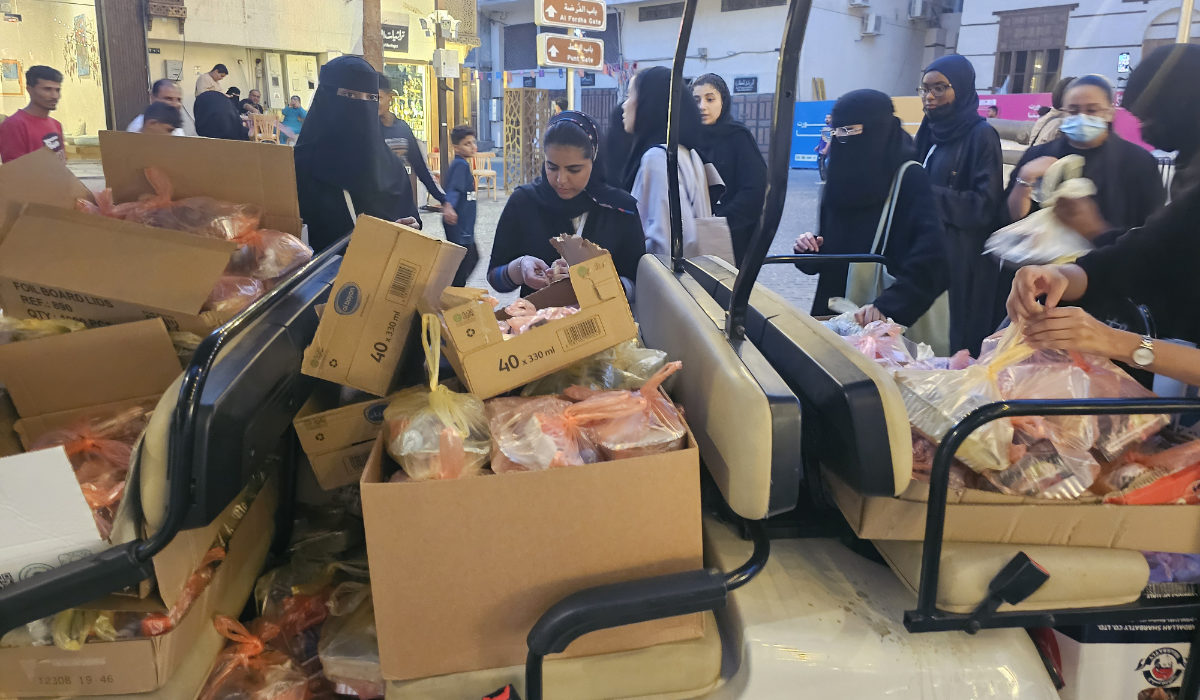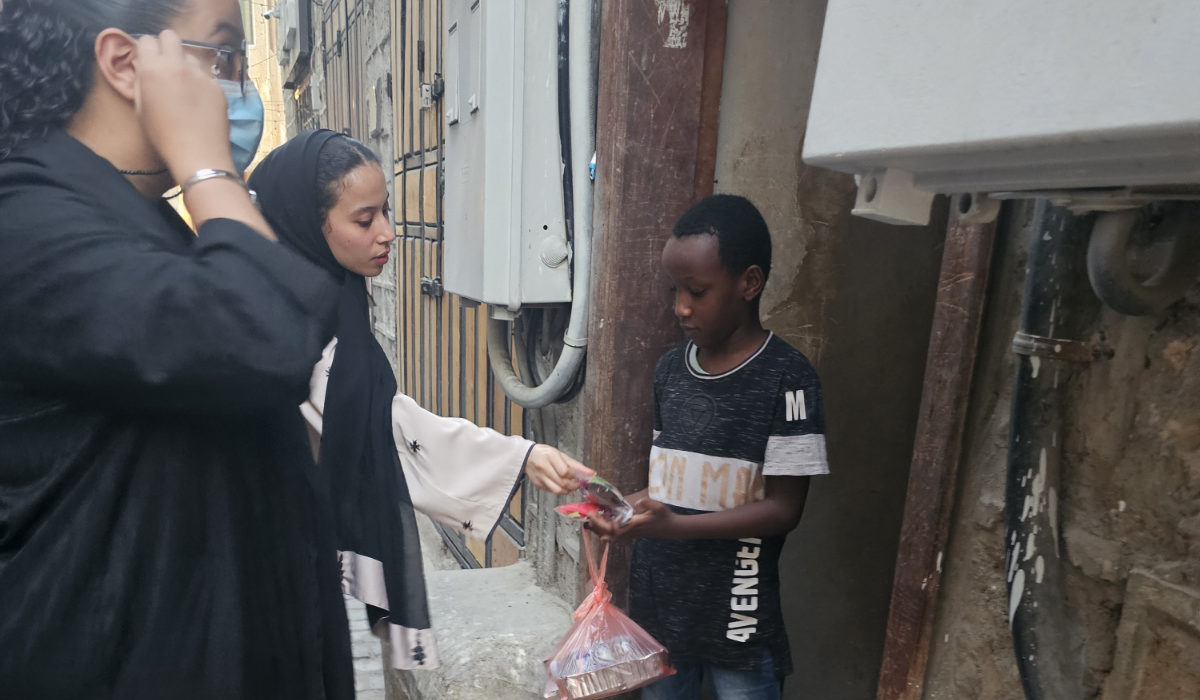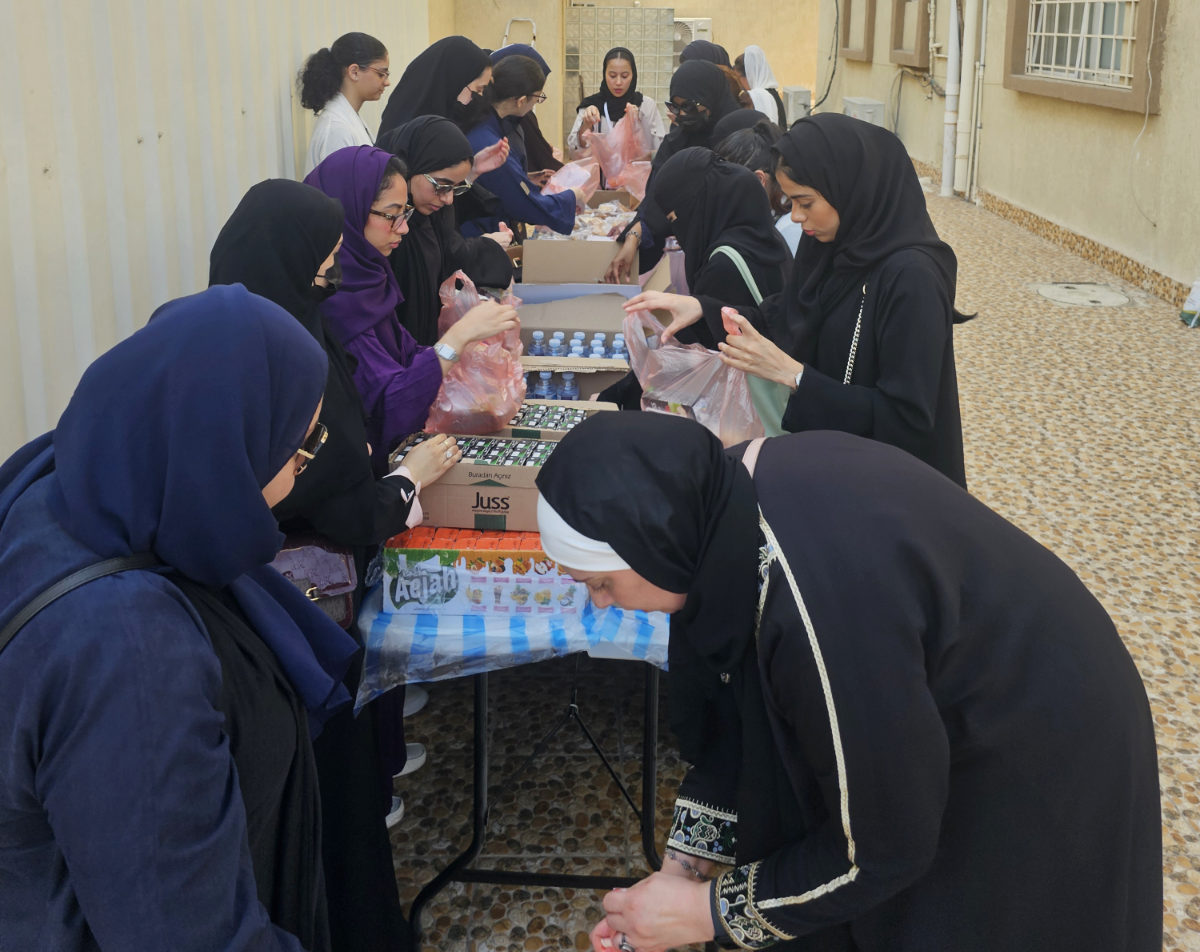JEDDAH: As part of their commitment to giving back to society, management information systems students at King Abdulaziz University partnered with Kayani Event Management to distribute iftar meals and food baskets to needy families and homes in Al-Balad.
“Giving is blessing ... doing it during the blessed month is a big bonus from Allah. We are honored this Ramadan to partner with the management information systems team and deliver the noble mission together,” said Rana Bajoudah, CEO of Kayani.
She added: “Through this activity, we aim to reach those who are in need such as poor families, elderly and divorced mothers. It also raises awareness, creating memorable experiences (and) aiding communities in need, and gives opportunities to the younger generation to participate in good causes of charity and help them understand its significance.”

Females students from King Abdulaziz University and members of Kayani prepared and distributed food boxes containing rice, chicken, water, laban and dates. (AN photo)
Kayani group has formed its own community in Jeddah and distributes iftar meals and grocery boxes in underprivileged neighborhoods in Jeddah every Ramadan.
“This year we were contacted by the management information systems team at KAU and asked to be part of our initiative as part of their social responsibility program,” said Bajoudah.
Our students are part of the community, and therefore it is important for them to express their appreciation in any way they can.
Dr. Raneem Saqr, Department supervisor at KAU
Dr. Raneem Saqr, the supervisor of the management information systems department at KAU, said the students were enthusiastic about participating in this initiative, which reflected the principles of giving and generosity in Ramadan, as they estimated the amount of food required and worked alongside Kayani to prepare healthy meals for iftar.
“It was the students’ idea to be part of this noble initiative. It was touching to see how the students felt about this and their belief that doing good is an integral part of fasting,” said Saqr.
She said the initiative aimed to enhance the spirit of participation and the value of giving during the Ramadan.

Females students from King Abdulaziz University and members of Kayani prepared and distributed food boxes containing rice, chicken, water, laban and dates. (AN photo)
“Our students are part of the community, and therefore it is important for them to express their appreciation in any way they can,” she said.
Saqr added that around 50 students have taken part in distributing iftar meals this month.
While the students were preparing iftar boxes, when asked about their feelings, they said that doing good gives fasting a more beautiful and spiritual meaning.

Females students from King Abdulaziz University and members of Kayani prepared and distributed food boxes containing rice, chicken, water, laban and dates. (AN photo)
Arab News visited the kitchen to witness the spectacle of so much food being prepared for the day and met with the chef behind the meals.
Arwa Al-Sunni is an amateur chef who has been providing special meals in Ramadan to various charitable organizations.
“I am proud to be part of this community-focused initiative,” she said.
Al-Sunni started preparing for the iftar meals by making arrangements and commodities about few days before Ramadan as it requires a lot of advance planning and dedication.
The Saudi chef, who has been behind iftar preparation for the last 20 days, said the number of meals has reached 1,300.
“Nothing goes to waste and the quantity is sufficient for every person,” she said.
The students and members of Kayani gathered at a specified place around 3 p.m. to help prepare food boxes, which usually contain rice, chicken, water, laban and dates.
After preparing the iftar boxes, groups were formed to distribute the food in Jeddah’s historic Al-Balad district.
Before Maghrib prayers, the students arrived in Al-Balad and visited homes for poor families, greeting people with the words “Ramadan Kareem” and handing over the iftar meal boxes.































